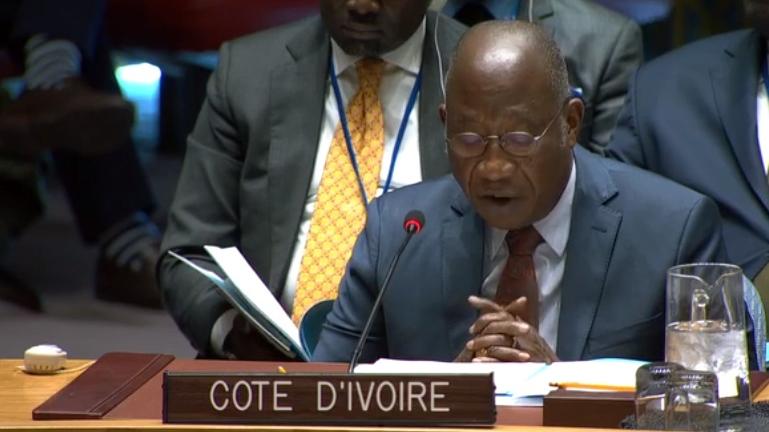Stressing that the reconfiguration of UNIOGBIS should take place after the completion of the electoral cycle in 2019, the Council reaffirmed that the electoral process remains a priority.
Thus, the Security Council requests UNIOGBIS, including through the use of the good offices and political support of the Special Representative, to focus, in particular, on the following priorities:
- Support, through good offices the electoral process to ensure inclusive, free and credible legislative elections on 10 March 2019 and presidential election in 2019 within the legally mandated time frame;
- Support the full implementation of the Conakry Agreement and the ECOWAS Roadmap, and facilitate an inclusive political dialogue and national reconciliation process, strengthening democratic governance, particularly with regards to the implementation of necessary urgent reforms;
- Provide support, including by technical assistance, to national authorities in expediting and completing the review of Guinea-Bissau’s Constitution;
In addition to these priorities, UNIOGBIS and the Special Representative will continue to assist, coordinate and lead international efforts to ensure lasting peace and stability in Guinea Bissau. They would achieve this by providing support to the Government of Guinea-Bissau in strengthening democratic institutions and enhancing the capacity of state organs to function effectively and constitutionally; Assisting national authorities and stakeholders in the promotion and protection of human rights as well as undertake human rights monitoring and reporting activities;
Uniogbis will also continue providing strategic and technical advice and support to the Government of Guinea-Bissau to combat drug trafficking and transnational organized crime, in close cooperation with UNODC.
Regarding the reconfiguration of UNIOGBIS, the 15-members body has decided that from June 2019, the Mission should operate as a streamlined good offices special political mission, led by a Special Representative at the Assistant Secretary-General level. UNIOGBIS will then reprioritize its tasks according to three main phases. The first phase will run until the end of the electoral period – parliamentary and presidential elections -, during the second phase UNIOGBIS will prepare a transition plan in line with the new UN partnership framework to be agreed with the Government; and finally, in phase III (transition phase) UNIOGBIS will implement the transition plan for the gradual drawing down and transfer of tasks to UN Country Team (UNCT), the United Nations Office for West Africa and Sahel (UNOWAS) and international partners, with a view toward prospective completion by December 31, 2020.
The ambassador of Ivory Coast, who was the pen holder for the resolution informed that the council “refrained from imposing a strict and rigid calendar and timeline for this reconfiguration of UNIOGBIS so as to allow genuine flexibility which will take into account the development of the situation on the ground”.
The Secretary-General’s special report on a strategic assessment of UNIOGBIS was release on 5 December 2018. According to the report, a lack of national political will has hindered the mission’s ability to implement its mandate over the nearly twenty years that UNIOGBIS and UNOGBIS have been present. It proposed a reconfiguration and exit plan for UNIOGBIS, recommending three phases for the mission’s future engagement.
On 7 February this year, the Secretary-General’s latest report on Guinea-Bissau asked the Council to endorse the recommendations of the special report. Which it did.
Finally, the Security Council has decided to review the sanctions measures established in 2012 seven months from the adoption of the new resolution, especially in the light of expectations regarding the conduct of the electoral process.






